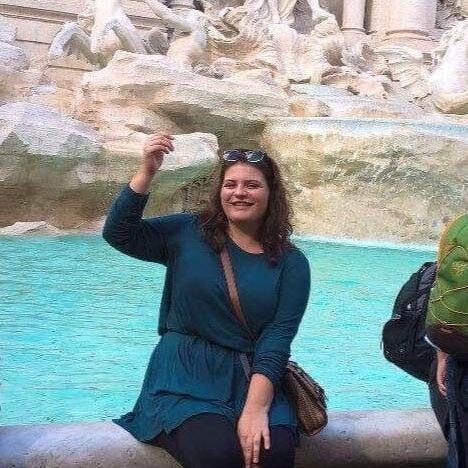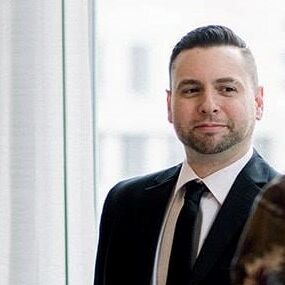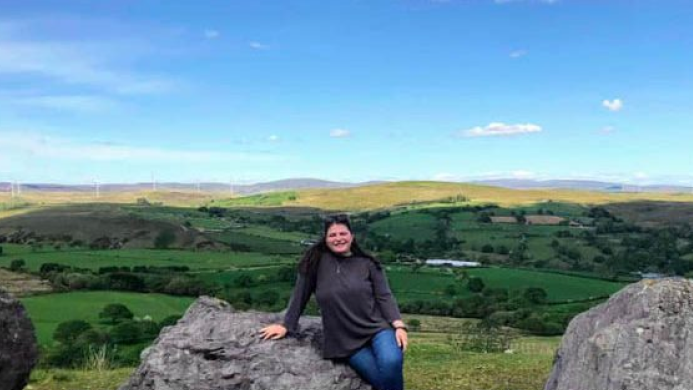By Lindsay Jamerson
The Peace and Conflict Studies Department facilitates learning for many types of students with diverse interests and professional goals. This series continues with a focus on Dorothy Kennedy and Justin Hunt.
Lindsay:
Did you always want to work in peace?
Dorothy:
Yes and no. I always knew I wanted to do something that involved helping others and for a long time, I thought that was to be a Nurse and then a special education teacher.
When I found the introductory PCS class taught by Tom Martinek Jr. and learned about restorative justice and other sectors of peace work, I knew almost immediately that this field encompassed all that I wanted to do, but didn’t know how to articulate.
This program has prepared me for the professional world by teaching me skills and theories that fill my toolbox that I will be able to draw from when working on sustainable peacebuilding and conflict management and transformation.
DOROTHY KENNEDY
Lindsay:
What jobs have you had in the non-profit sector?
Dorothy:
I have volunteered with several non-profits over the years in the Greensboro/High Point area. But I have worked most closely with World Relief Triad in the High Point office.
First, I worked as a Refugee Resettlement Case Management intern, where I learned the ins-and-outs of case management and client support.
Then I partnered with them again as a Non-Profit Operations and Management intern, where I assisted the missions and development team on several aspects of non-profit management, including data metrics/research, community development and engagement, and so on.
Lindsay:
What has been your favorite class in the PCS program?
Dorothy:
My favorite class was PCS 415, Global Peacebuilding. This was my favorite course because it included the areas I love so much, working on an international scale and with international people. Global Peacebuilding introduced me to conflict analysis and post-conflict stabilization as areas within the peace and conflict studies field.
One of the things I took from this course that I really hadn’t thought about before, and it has greatly shaped how I now see humanitarian work as a whole, was how to help local people while respecting their autonomy.
We learned how to truly collaborate and partner with the populations you intend to work with in a beneficial way, teaching and learning along the way, but all with the goal of empowering those you work with and with the aim of sustainability.

Lindsay:
Where do you see yourself in five years?
Dorothy:
I hope to be working with a non-profit agency as a program officer where I will help the most vulnerable among us, whether that be nationally or internationally.
Justin Hunt graduated from UNCG in the spring of 2020, studying Social Work and PCS, and is currently enrolled in the Master’s Program in Peace and Conflict Studies at UNCG.
There is a realistic view of the world presented in the program at UNCG, leaving those who wish to continue on in this discipline with the ability to face these challenges, rather than be surprised by them.
Justin Hunt
Lindsay:
Why did you choose UNCG for your undergraduate studies?
Justin:
UNCG had the best, and the most affordable, social work program in the Triad.
Lindsay:
Did you always want to work in peace?
Justin:
I believe that I have, but I put it on the backburner for many years. Issues involving peacebuilding have been in my purview since I was a young teenager; however, life took me in many directions over the years, ultimately bringing me back to the field.
Lindsay:
How has PCS prepared you to enter the professional world?
Justin:
Having already worked in professional environments for years, PCS has helped me to use reflective practice on what I could have done differently in the past when conflict arose at my workplace.
Now, instead of blaming others for conflicts in my professional environment, I have learned how to assess my role in relation to others to either assist in transforming the conflict into positive peace or to keep the lines of communication nonviolent so escalation does not occur.

Lindsay:
What has been your favorite class in the program?
Justin:
My favorite class was Conflict Transformation. I took the course upon the suggestion of my social work advisor. The moment the professor told us what we would be discussing during the course, I fell in love with Peace and Conflict Studies. I immediately looked into adding PCS as a second major.
I liked how the Conflict Transformation course was adaptable to your personal interests. One can choose to concentrate their work on transforming international or community conflict. Class discussions and group projects created an environment for community building of our own in the classroom.
Lindsay:
What work have you done that involves peacebuilding?
Justin:
I am currently interning at a refugee resettlement agency.
Lindsay:
Where do you see yourself in five years?
Justin:
I would love to be working for an organization whose mission is to end human and natural resource exploitation by huge multinational corporations feeding the globalist capitalist machine. Broad? Yes. However, the field of peacebuilding is extremely broad and ill-defined in the job market.
After I earn my Master’s, I will apply for jobs in the market. However, if I am unsuccessful in landing a job due to a lack of international experience, I will join the Peace Corps to further that experience.
